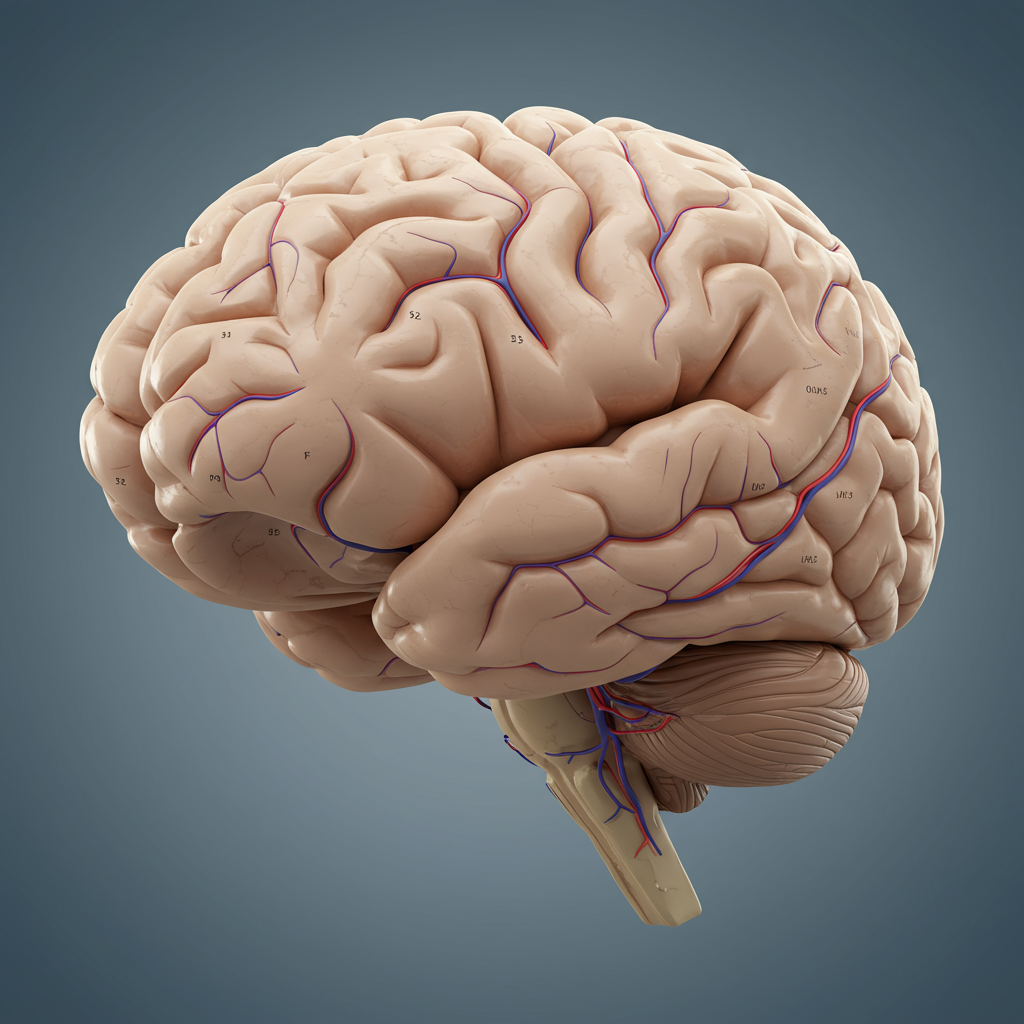Are you getting enough restorative sleep? Many people unknowingly sacrifice precious hours, unaware that a chronic lack of sleep can have a profoundly detrimental and accelerating effect on brain health. Recent groundbreaking research confirms that insufficient or poor-quality sleep isn’t just making you tired; it’s literally aging your brain faster and could be paving the way for cognitive decline and exacerbated mental health challenges. This isn’t merely a feeling; scientific evidence shows that consistent poor sleep impacts brain structure, function, and overall well-being.
The Silent Saboteur: Accelerated Brain Aging
The idea that sleep deprivation visibly harms your brain might sound alarming, but multiple studies now paint a clear picture. Our brains rely on sleep for crucial restorative processes. When we consistently fall short, these vital functions are compromised, leading to measurable signs of premature aging within the brain.
The Karolinska Insight: A Year Older
A significant study from the Karolinska Institutet, involving over 27,000 UK adults aged 40 to 70, utilized MRI scans and detailed sleep evaluations to assess “brain age.” Researchers found compelling evidence that individuals with poor sleep health exhibited brains that appeared, on average, a full year older than their chronological age. The findings were even more precise: for every point decrease in a person’s healthy sleep score, their apparent brain age increased by six months. This research strongly highlights sleep as a modifiable lifestyle factor, suggesting that improving sleep habits could be a powerful tool against accelerated brain aging and associated cognitive decline.
UCSF and AAN: Brain Shrinkage Quantified
Further emphasizing this critical link, a 2024 study published in Neurology by the University of California, San Francisco (UCSF) and the American Academy of Neurology (AAN) revealed a staggering connection between poor sleep and accelerated brain shrinkage, also known as atrophy. This long-term research tracked approximately 600 adults, surveying their sleep habits before conducting brain scans a decade later. The results indicated that individuals who struggled with poor sleep exhibited significantly more atrophied brains. Quantitatively, their brains appeared 1.6 to 2.6 years older than those who consistently slept well, even after accounting for various demographic and lifestyle factors. Another related study from the same journal indicated that middle-aged adults reporting three or more sleep problems could experience nearly three years of additional brain aging. Prioritizing quality sleep, especially earlier in life, is therefore a critical preventative measure against brain decline.
Beyond Age: Cognitive Decline and Mental Health
The impact of insufficient sleep extends far beyond just “brain age.” It intricately links to your cognitive abilities and profoundly influences your mental and emotional well-being, creating a complex, bidirectional relationship.
The Bidirectional Battle: Sleep and Your Mind
Sleep problems are not merely a symptom of mental health issues; they can also be a significant cause. Quality sleep is foundational for good mental health, supporting functions like thinking, learning, and memory. Crucially, research from the Sleep Foundation confirms that brain activity during sleep, especially during REM sleep, plays a vital role in processing emotional information. A consistent lack of sleep can be particularly detrimental to consolidating positive emotional content, leading to negative impacts on mood and emotional reactivity. This deficit can even exacerbate the severity of mental health disorders and increase the risk of suicidal ideation.
Processing Emotions and Preventing Distress
The brain uses sleep to consolidate memories, repair cellular damage, and clear out metabolic waste products that accumulate during wakefulness. Without sufficient rest, these processes are disrupted. This directly affects how well you can manage stress, interact with others, and make sound decisions. Conditions such as ADHD, anxiety, depression, PTSD, and even dementia have complex interconnections with sleep disturbances, often worsening when sleep quality is poor. Even Obstructive Sleep Apnea (OSA), which causes fragmented sleep and reduced oxygen levels, is observed more frequently in individuals with psychiatric conditions, potentially intensifying mental distress.
Understanding the Mechanisms: Inflammation and Beyond
How does poor sleep exert such a profound effect on the brain? One identified mechanism is increased inflammation. The Karolinska Institutet study noted that inflammation accounted for approximately 10 percent of the observed connection between poor sleep and accelerated brain aging. Chronic inflammation is a known contributor to cellular damage and has been implicated in various neurodegenerative diseases. While inflammation is one piece of the puzzle, scientists continue to explore other biological pathways through which sleep deprivation detrimentally affects cognitive health, including disruptions in waste removal, hormonal imbalances, and altered neurotransmitter activity.
Reclaim Your Brain: Actionable Sleep Strategies
The good news is that sleep is a modifiable lifestyle factor. You have the power to protect your brain by improving your sleep habits. Even if the causal link between poor sleep and brain shrinkage is still being fully disentangled, the correlation is strong enough to warrant proactive intervention.
Mastering Sleep Hygiene for Brain Health
Cultivating robust sleep hygiene is a fundamental step towards better brain health. Consider incorporating these habits:
Maintain a consistent sleep schedule: Go to bed and wake up at the same time every day, even on weekends.
Establish a relaxing pre-bedtime routine: Engage in calming activities like reading, a warm bath, or meditation, avoiding stimulating content or work.
Be mindful of stimulants: Avoid caffeine, alcohol, and tobacco in the evening, as they can disrupt sleep architecture.
Dim the lights and ditch devices: Limit screen time from electronic devices at least an hour before bed. While some research suggests screen light itself might not be the primary culprit, the mental engagement with devices can be highly stimulating, hindering your ability to wind down.
Incorporate regular daytime exercise: Physical activity can improve sleep quality, but avoid intense workouts too close to bedtime.
Optimize your sleep environment: Ensure your bedroom is dark, quiet, cool, and comfortable. Invest in a supportive mattress and bedding.
- Seek natural light exposure: Getting natural light, especially in the morning, helps regulate your circadian rhythm.
- www.independent.co.uk
- www.sleepfoundation.org
- www.bbc.com
- m.economictimes.com
- www.hindustantimes.com
The Power of Cognitive Behavioral Therapy for Insomnia (CBT-I)
For those struggling with persistent sleep problems like insomnia, Cognitive Behavioral Therapy for Insomnia (CBT-I) stands out as an evidence-based intervention. This form of talk therapy focuses on identifying and changing negative thought patterns and behaviors that interfere with sleep. A significant clinical trial demonstrated that CBT-I can not only alleviate sleep problems but also improve overall mental well-being, fostering emotional health and even reducing psychotic episodes. Integrating such professional guidance can be incredibly effective in enhancing both sleep quality and mental state.
Future Focus: Prioritizing Sleep for Lifelong Brain Health
The consensus among experts is clear: sleep is an essential “braincare” activity, vital for rejuvenating and restoring brain health. Addressing sleep problems early in life, particularly in middle age, is crucial for preserving cognitive function in later years. While the precise mechanisms continue to be explored, the consistent findings across multiple long-term studies underscore sleep as a powerful, yet often overlooked, investment in your long-term cognitive vitality. Taking steps today to improve your sleep is a proactive decision for a sharper, healthier brain tomorrow.
Frequently Asked Questions
How does chronic lack of sleep physically impact brain structure?
Chronic insufficient sleep is directly linked to accelerated brain aging and shrinkage, or atrophy. Studies, including those from UCSF and the American Academy of Neurology, show that poor sleepers’ brains can appear several years older than their chronological age. This is due to compromised restorative processes during sleep, which can lead to increased inflammation—a factor accounting for 10% of accelerated brain aging, as found by the Karolinska Institutet. These structural changes can elevate the risk for long-term cognitive decline.
What are the most effective strategies to improve sleep for better brain health?
Improving sleep for optimal brain health involves a multi-pronged approach, starting with excellent sleep hygiene. This includes maintaining a consistent sleep schedule, establishing a relaxing pre-bedtime routine, optimizing your bedroom environment (dark, quiet, cool), avoiding stimulants like caffeine and alcohol in the evening, and limiting stimulating screen time before bed. For persistent issues, Cognitive Behavioral Therapy for Insomnia (CBT-I) is a highly effective, evidence-based therapy that helps individuals modify thoughts and behaviors interfering with restorative sleep.
Can reversing poor sleep truly prevent accelerated brain aging?
Yes, evidence suggests that improving sleep quality can be a viable pathway to prevent or even slow accelerated brain aging. Since sleep is a modifiable lifestyle factor, interventions like adopting healthy sleep habits and utilizing therapies such as CBT-I offer a practical strategy. Researchers from the Karolinska Institutet emphasize that proactive improvements in sleep can mitigate the risk of cognitive decline associated with premature brain aging. Prioritizing good sleep quality, especially at younger ages, is seen as a critical preventative measure for long-term brain health.
Conclusion
The evidence is mounting and unambiguous: a consistent lack of quality sleep significantly harms your brain. It accelerates aging, contributes to brain shrinkage, and profoundly impacts your cognitive abilities and mental health. While the idea of your brain aging faster is unsettling, the good news is that you have the power to intervene. By prioritizing restorative sleep, adopting robust sleep hygiene practices, and seeking professional help like CBT-I when needed, you can actively protect your brain’s structure and function. Make quality sleep a non-negotiable part of your daily routine – it’s the most vital investment you can make for a sharper mind and a healthier future.




